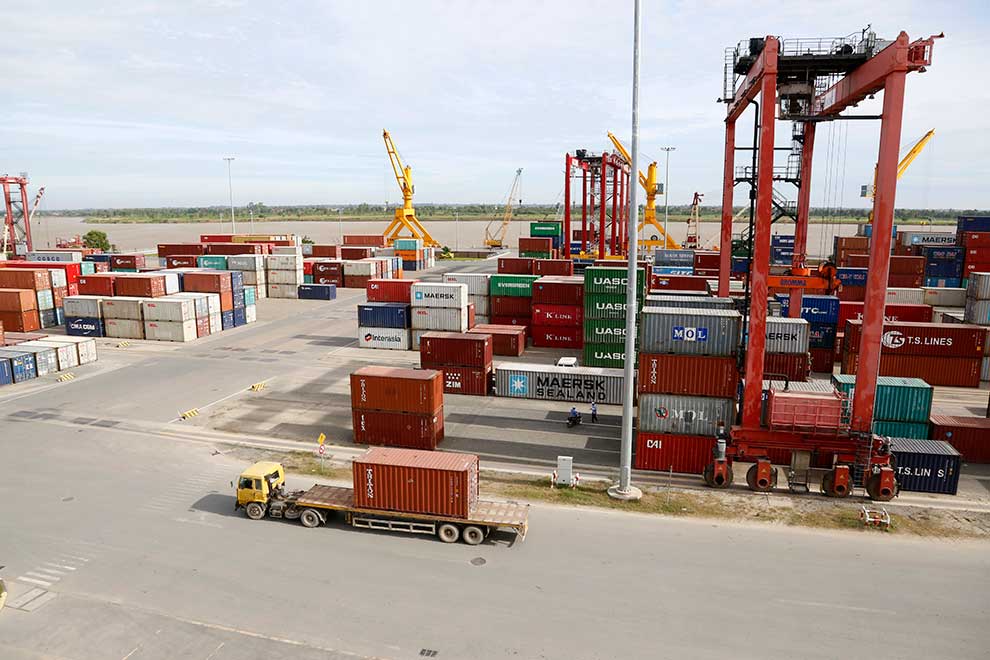
Phnom Penh Autonomous Port’s LM17 container terminal southeast of the capital, in 2016. Heng Chivoan
Phnom Penh has asked Seoul to complete its internal procedures as soon as possible for the bilateral Cambodia-Korea Free Trade Agreement to enter into force, which will stimulate trade between the two countries to “another level”, according to a commerce ministry spokesman.
Signed between Minister of Commerce Pan Sorasak and his South Korean counterpart Yeo Han-koo on October 26 via video link, the CKFTA is to become effective 60 days after both sides have completed their internal procedures and deposited their respective instrument of ratification (IoR).
The signing came two and a half years after Cambodia Prime Minister Hun Sen raised the idea of a bilateral free trade agreement (FTA) at a meeting with South Korean president Moon Jae-in in Phnom Penh in March 2019.
Under the CKFTA, coupled with the Regional Comprehensive Economic Partnership (RCEP), the Kingdom will lift tariffs on 93.8 per cent of goods traded, with South Korea scrapping duties on 95.6 per cent, according to the Yonhap News Agency. Ministry undersecretary of state Penn Sovicheat has also noted that the CKFTA will provide more than 10,000 Cambodian items duty-free access to South Korea.
Ministry of Commerce spokesman Seang Thay told The Post on June 22 that Cambodia had already completed its internal procedures, mentioning National Assembly approval of a law ratifying the trade deal, the King’s endorsement of a Royal Code to enact the law, and the deposit of its IoR.
He reasoned that the delay on Seoul’s part was, to some extent, due to the change in administration on May 10, when Yoon Seok-youl took office as president. “We can only conjecture, but Cambodia has asked the Korean side to expedite its internal procedures,” he said.
Thay underscored that the CKFTA would provide myriad benefits to both countries, such as ensuring better economic cooperation; spurring bilateral flows of goods that cater to the other’s demands; widening existing markets for merchandise, services and investments and giving rise to new ones; and enhancing trade facilitation.
Hong Vanak, director of International Economics at the Royal Academy of Cambodia, agreed, adding that the tariff benefits of the FTA would promote more Cambodian agricultural exports to South Korea, providing a real shot in the arm for the market.
Should Cambodia look to cash in on the trade deal, industry players must scale up production of high-quality goods that fulfil the requirements of the Korean market, he stressed.
Combined with the RCEP which entered into effect on January 1 in Cambodia and on February 1 in South Korea, the CKFTA is “certain” to drive up trade flows between the two countries substantially, he suggested.
According to the General Department of Customs and Excise, in the first five months of 2022, trade between the two countries totalled $361.83 million, marking an 18.9 per cent rise year-on-year. Of that, Cambodian exports were to the tune of $92.72 million, up by 23 per cent, and imports were $269.11 million, an increase of 17.6 per cent.












